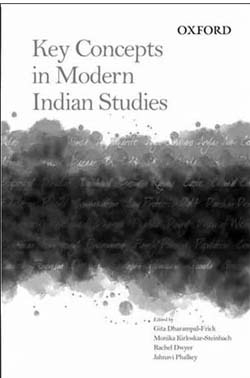The present volume calls to mind A Dictionary of Modern Indian History: 1707–1947 by Parshotam Mehra, also published by the Oxford University Press in 1985 (revised edition in 1987), a book that some of us would have profitably consulted as students. But such association between the two works is purely spontaneous and the resemblance only superficial. The work under review has many more features to commend itself to the interested reader. For one, it carries updated information and new findings that have come our way in the last three decades or so. Again, quite purposively, it includes the postcolonial, albeit only selectively. But above all, the approach adopted in this work is far more interesting and enterprising. In terms of its organization and content, it goes beyond a dictionary and stops short of an encyclopedia which, I suppose, it never aspired to be. A good number of essays included in this volume are acutely analytical and intensive: they highlight crucial heuristic transformations and subtle conceptual changes within a wide repertoire of terminologies. The discerning reader will also be able to glean in them the creative dialogue between ideas and praxis. One may thereby gain greater understanding of how concepts may bring about subtle but significant changes in social practice and conversely, of the process by which social practice internally fashions conceptual nuances.
October 2015, volume 39, No 10

